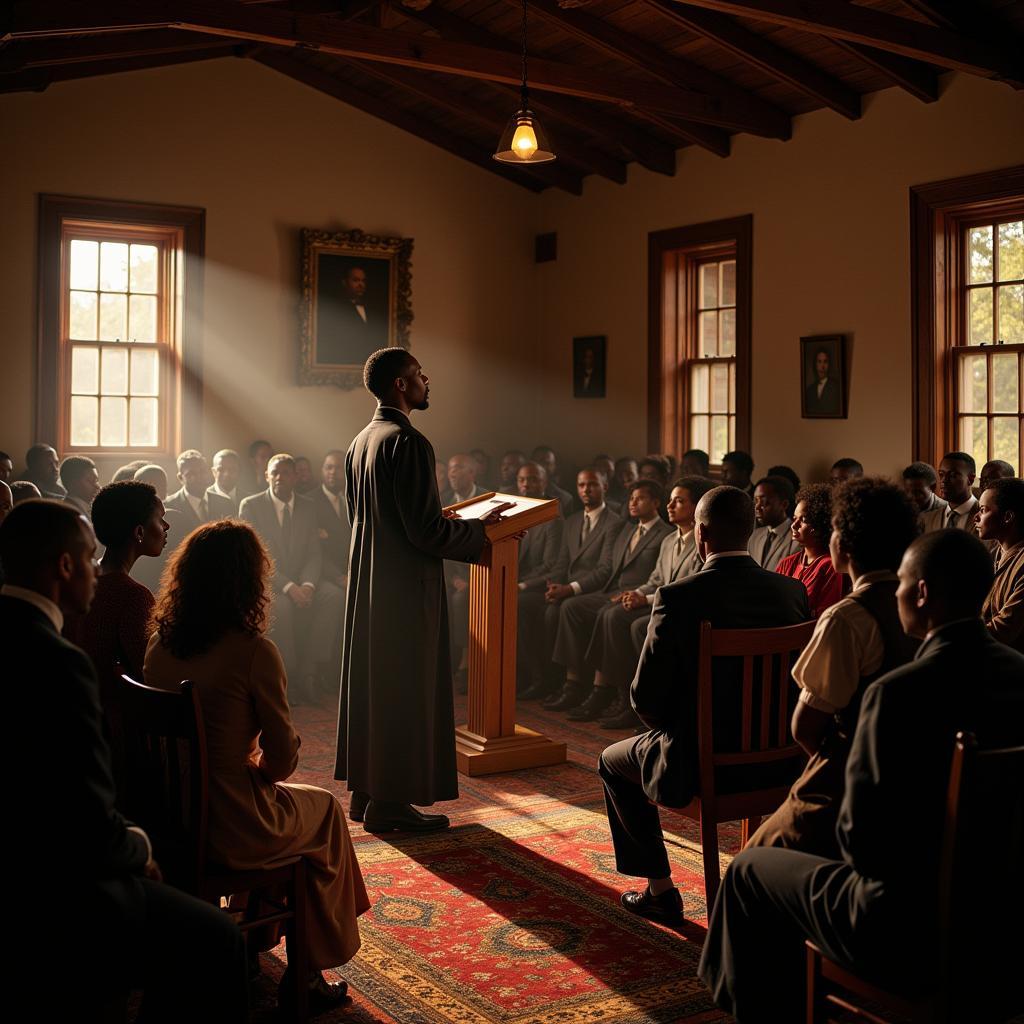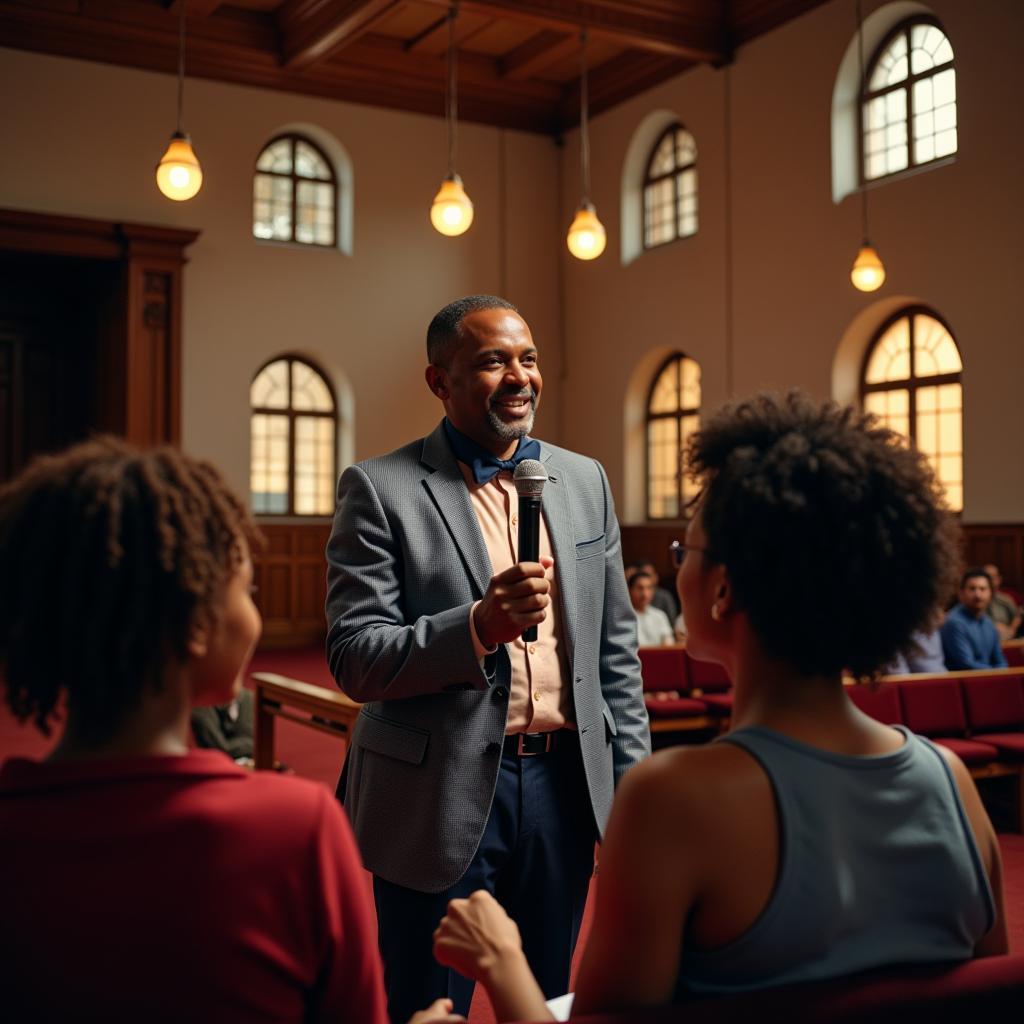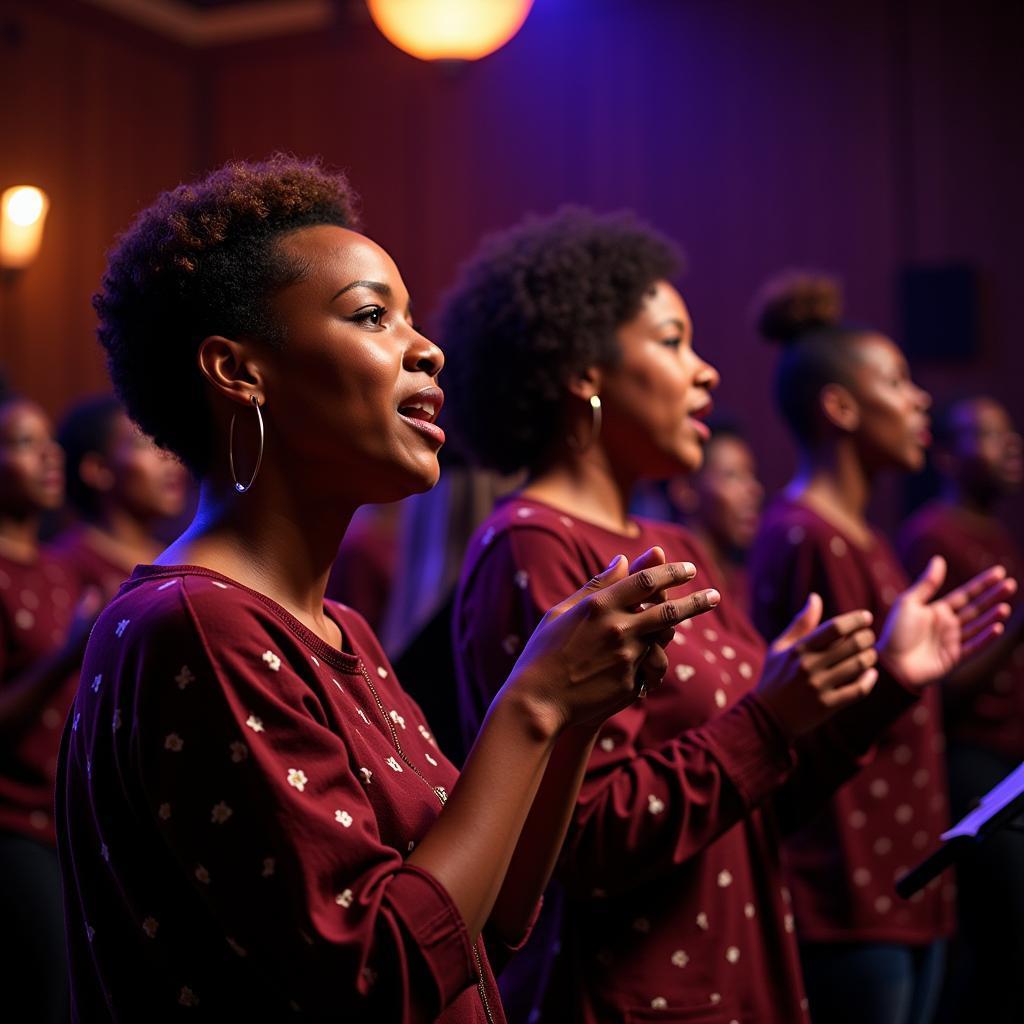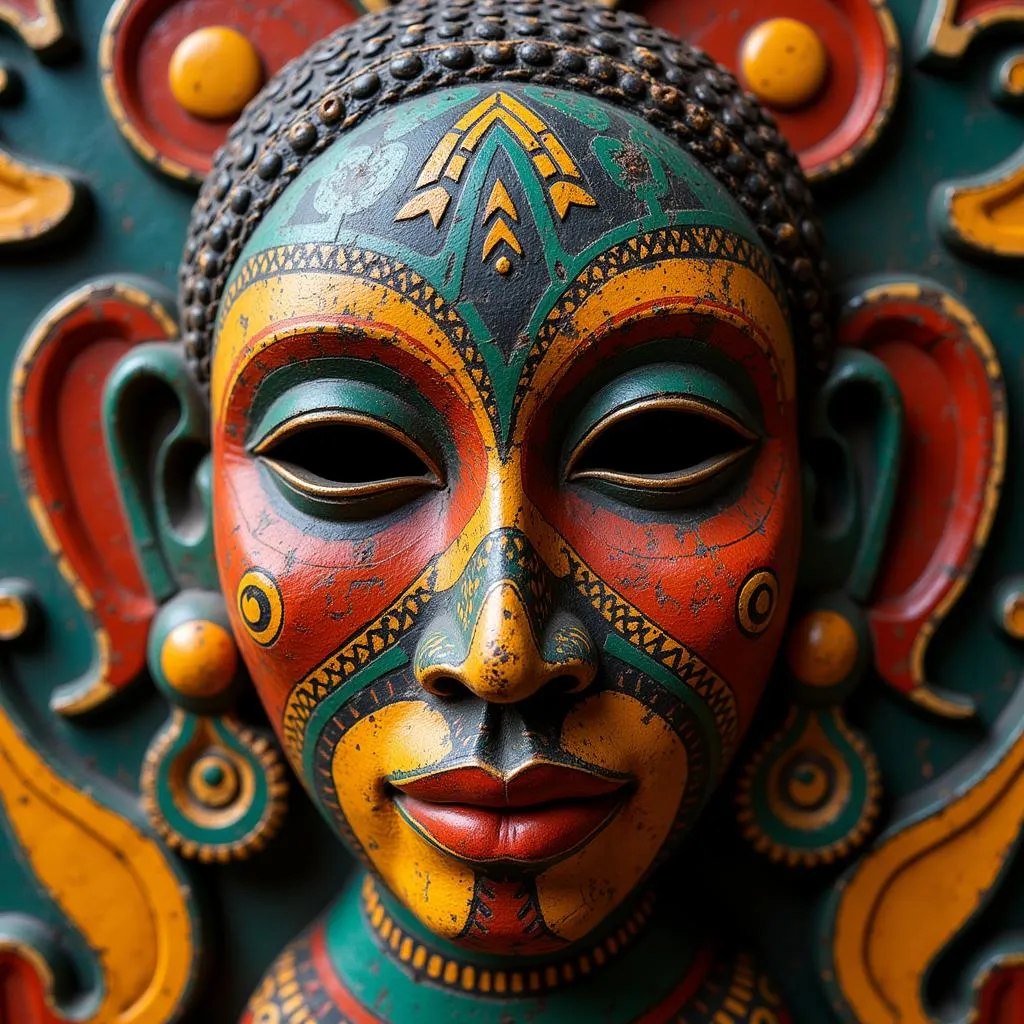The African American Pulpit: A Voice of Power, Resilience, and Change
The African American Pulpit has served as a cornerstone of the Black community for centuries. From the hush of secret gatherings during slavery to the vibrant congregations of today, the African American pulpit represents far more than just a place for Sunday sermons. It’s a source of strength, a beacon of hope, a catalyst for social change, and a powerful expression of faith, resilience, and cultural identity.  The History and Legacy of the African American Pulpit
The History and Legacy of the African American Pulpit
A Historical Sanctuary: The Pulpit’s Role in the Struggle for Freedom
Throughout history, African American churches have been more than just places of worship. They’ve served as schools, community centers, and safe havens, offering refuge and fostering a sense of unity in the face of adversity. The pulpit, within these sacred spaces, became a powerful platform for education, social mobilization, and political action. During the tumultuous era of slavery, spirituals—coded songs sung by enslaved Africans—were often born from the very messages preached from the pulpit, carrying hidden meanings of hope and resistance. Later, during the Civil Rights Movement, the African American pulpit became a central organizing force, with leaders like Dr. Martin Luther King Jr. using their sermons to inspire and mobilize communities to fight for equality and justice.
The Evolution of the African American Pulpit
The African American pulpit has undergone significant evolution throughout the years. From the early spirituals and passionate calls for freedom to the sophisticated theological discourses of today, the messages delivered from the pulpit have reflected the changing times and the ongoing struggle for social justice. However, one constant has remained: the profound impact of the preacher’s words on the lives of their congregations and the wider community.
 African American Preacher Engaging with the Community in a Modern Church Setting
African American Preacher Engaging with the Community in a Modern Church Setting
The Power of Oratory: A Unique Rhetorical Tradition
The distinct rhetorical style of the African American pulpit is deeply rooted in the oral tradition of West Africa, incorporating elements of storytelling, call and response, and powerful imagery. This captivating style resonates deeply with listeners, fostering a sense of shared experience and collective identity. The preacher’s ability to connect with the congregation on an emotional and spiritual level has made the African American pulpit a uniquely powerful force in shaping the lives and beliefs of its members. Consider, for instance, the powerful sermons of african american preachers sermons which have been instrumental in inspiring faith and action within the community. This rich tradition continues to evolve and inspire, shaping the cultural landscape and promoting social change.
What makes the African American pulpit’s rhetorical style so unique?
The rhetorical tradition of the African American pulpit is characterized by its dynamic use of language, music, and emotion. This unique blend of elements creates a powerful and engaging experience for listeners, fostering a deep sense of connection and shared identity. The preacher’s ability to weave together personal narratives, biblical teachings, and social commentary makes the sermon a powerful tool for both spiritual upliftment and social action.
 African American Church Choir Singing Gospel Music
African American Church Choir Singing Gospel Music
Beyond the Sunday Sermon: The Pulpit’s Influence on Culture and Society
The influence of the African American pulpit extends far beyond the church walls, shaping music, literature, politics, and the overall cultural landscape. From gospel music to the inspiring speeches of civil rights leaders, the rhythms and cadences of the African American pulpit have permeated various forms of artistic expression. The values and messages preached from the pulpit have also profoundly influenced the political and social activism of the Black community, advocating for equality, justice, and social change. You might also be interested in learning more about african american churches in richmond va, which played a significant role in the city’s rich history and cultural development. This demonstrates how geographically specific congregations can contribute to broader cultural narratives. Additionally, for those interested in exploring the portrayal of the church in cinema, you might want to check out african church movie. Furthermore, understanding the educational background of religious leaders within this tradition is crucial. african american seminaries offer insights into the theological and intellectual foundations that shape the messages delivered from the pulpit.
Conclusion: The Enduring Legacy of the African American Pulpit
The African American pulpit stands as a testament to the power of faith, resilience, and community. From its historical role in the struggle for freedom to its continuing influence on culture and society, the African American pulpit remains a vital force in shaping the lives and experiences of Black people across the globe. Its powerful voice continues to resonate, inspiring hope, challenging injustice, and advocating for a more equitable future. Perhaps you might find it intriguing to explore other aspects of African American culture, such as 1960s african american fashion, which reflects the social and political dynamics of the era. This exemplifies the wide range of cultural expressions influenced by the African American experience.
FAQ
- What is the historical significance of the African American pulpit?
- How has the African American pulpit contributed to the Civil Rights Movement?
- What are the key characteristics of the African American preaching style?
- How has the African American pulpit influenced music and other forms of art?
- What is the role of the African American pulpit in contemporary society?
- How has the role of women in the African American church evolved?
- What are some of the challenges facing the African American church today?
Need Help?
When you need assistance please contact us:
Phone Number: +255768904061
Email: kaka.mag@gmail.com
Address: Mbarali DC Mawindi, Kangaga, Tanzania
We have a 24/7 customer support team.


